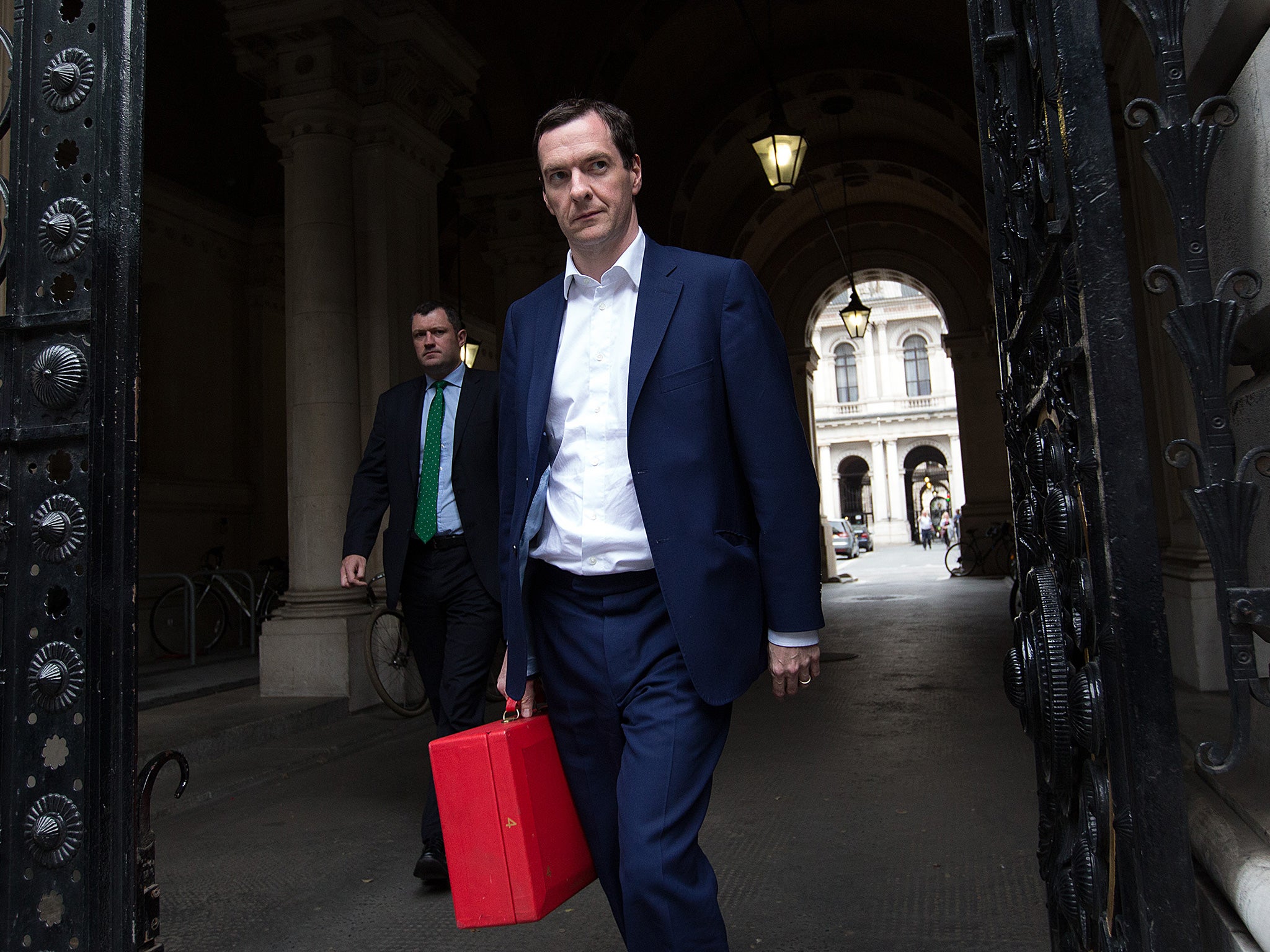Inequality: Richest one per cent 'have as much wealth as the poorest 57 per cent combined'
The full extent of the banking industry’s influence over the Chancellor has been revealed

Your support helps us to tell the story
From reproductive rights to climate change to Big Tech, The Independent is on the ground when the story is developing. Whether it's investigating the financials of Elon Musk's pro-Trump PAC or producing our latest documentary, 'The A Word', which shines a light on the American women fighting for reproductive rights, we know how important it is to parse out the facts from the messaging.
At such a critical moment in US history, we need reporters on the ground. Your donation allows us to keep sending journalists to speak to both sides of the story.
The Independent is trusted by Americans across the entire political spectrum. And unlike many other quality news outlets, we choose not to lock Americans out of our reporting and analysis with paywalls. We believe quality journalism should be available to everyone, paid for by those who can afford it.
Your support makes all the difference.The economic disparities of modern Britain have been put on stark display, as official statistics revealed that the nation’s already-yawning wealth gap has widened still further over the past two years.
The richest 1 per cent of the population have as much wealth as the poorest 57 per cent combined, according to Office for National Statistics figures. The agency also found overall wealth inequality has increased since 2012, mainly thanks to the soaring price of housing in the South-east of England and London.
The news came just 24 hours after the head of the Government’s Child Poverty watchdog, Alan Milburn, warned that Britain is in danger of becoming an “ever-more divided” society, making a mockery of David Cameron’s “One Nation” rhetoric.
The fresh evidence of economic polarisation also coincides with the revelation by The Independent that the Chancellor, George Osborne, has stepped up his private meetings with representatives of the UK’s big banks since the general election, amid a rising tide of concern that the banking lobby is again exerting an undue influence over government policy, just as it did before the 2008 financial crisis.
The image of a divided Britain was accentuated by the closure of Britain’s last deep coal mine, in North Yorkshire, putting 450 miners out of work. As recently as the 1970s, more than 250,000 were employed in pits that were a focal point for communities across Wales, the Midlands and the North of England.
Join our commenting forum
Join thought-provoking conversations, follow other Independent readers and see their replies
Comments